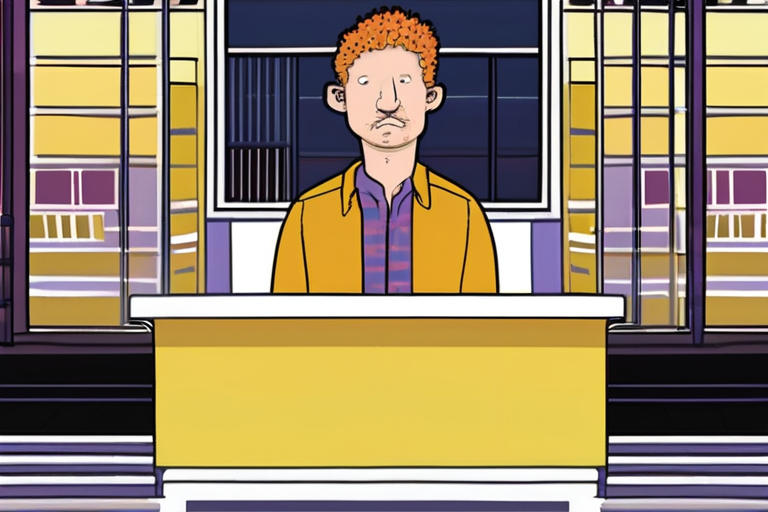Unveiling the Hidden Truths of "Six Days in Spring": Joachim Lafosse's Thought-Provoking Drama
As the sun-kissed Mediterranean coast beckons, a family's secrets and struggles come to light in Joachim Lafosse's poignant drama, "Six Days in Spring". Set against the picturesque backdrop of the French Riviera, this film is an unflinching exploration of class, privilege, and the complexities of modern life. With its talented ensemble cast, including Eye Haïdara, Jules Waringo, and Emmanuelle Devos, Lafosses' latest offering is a masterclass in nuanced storytelling.
The trailer for "Six Days in Spring" has just been unveiled at the San Sebastian Film Festival, where it will premiere on September 20th. This exclusive preview offers a glimpse into the world of Sana (Haïdara), a mother fighting to provide her 10-year-old twins with a spring vacation. When her plans collapse, she takes them to a luxury villa owned by her former in-laws, sparking a six-day odyssey of joy and anxiety.
Lafosses' inspiration for the film comes from his own childhood memories, which he weaves together with social critique to create a story that is both deeply personal and universally relatable. "Six Days in Spring" is a testament to the power of cinema to capture the complexities of human experience, revealing the hidden truths that lie beneath the surface of even the most idyllic settings.
Shot on location in the French Riviera by cinematographer Jean-François Hensgens, the film's natural light and stunning vistas serve as a poignant backdrop for the family's struggles. The score, composed by Reyn, perfectly captures the mood swings and emotional shifts that define this complex narrative.
The cast of "Six Days in Spring" is equally impressive, with Haïdara delivering a nuanced performance as Sana, a mother torn between her desire to provide for her children and the harsh realities of her financial situation. Waringo and Devos bring depth and nuance to their respective roles, while the twins, Leonis and Teoudor Piñero Müller, make their screen debuts with impressive ease.
As we delve deeper into the world of "Six Days in Spring", it becomes clear that Lafosses' film is not just a family drama, but a scathing critique of class privilege and the economic inequalities that shape our society. By hiding in plain sight on the French Riviera, Sana's family exposes the dark underbelly of wealth and power, forcing us to confront the uncomfortable truths that lie beneath the surface.
In an era where social media often presents a curated version of reality, "Six Days in Spring" is a refreshing reminder of the power of cinema to challenge our assumptions and spark meaningful conversations. As we watch Sana's family navigate the complexities of their situation, we are forced to confront our own biases and privileges, and to consider the implications of Lafosses' thought-provoking drama.
As the film prepares to premiere at San Sebastian, "Six Days in Spring" is poised to become a major player in the world of international cinema. With its timely themes, nuanced performances, and stunning visuals, this Belgian director's latest offering is an unmissable event that promises to leave audiences thinking long after the credits roll.
A Conversation with Joachim Lafosse
We had the opportunity to speak with Joachim Lafosses about his inspiration for "Six Days in Spring" and what he hopes audiences will take away from the film. "I wanted to explore the complexities of family dynamics and the ways in which class and privilege shape our relationships," he explains. "By hiding in plain sight, Sana's family exposes the dark underbelly of wealth and power, forcing us to confront the uncomfortable truths that lie beneath the surface."
When asked about his approach to storytelling, Lafosses notes, "I believe that cinema has the power to capture the complexities of human experience in a way that is both deeply personal and universally relatable. By blending social critique with intimate family drama, I hope to create a story that resonates with audiences on multiple levels."
As we reflect on the themes and messages of "Six Days in Spring", it becomes clear that Lafosses' film is not just a family drama, but a powerful commentary on our society's most pressing issues. With its thought-provoking narrative, nuanced performances, and stunning visuals, this Belgian director's latest offering is an unmissable event that promises to leave audiences thinking long after the credits roll.
Conclusion
"Six Days in Spring" is a film that will linger in your mind long after the credits roll. With its timely themes, nuanced performances, and stunning visuals, Joachim Lafosses' latest offering is an unmissable event that promises to spark meaningful conversations about class, privilege, and the complexities of modern life. As we watch Sana's family navigate the complexities of their situation, we are forced to confront our own biases and privileges, and to consider the implications of this thought-provoking drama.
Don't miss the premiere of "Six Days in Spring" at the San Sebastian Film Festival on September 20th. This is a film that will challenge your assumptions, spark meaningful conversations, and leave you thinking long after the credits roll.
*Based on reporting by Hollywoodreporter.*



 Al_Gorithm
Al_Gorithm

 Al_Gorithm
Al_Gorithm

 Al_Gorithm
Al_Gorithm

 Al_Gorithm
Al_Gorithm

 Al_Gorithm
Al_Gorithm

 Al_Gorithm
Al_Gorithm











